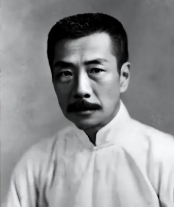阅读下面短文,在空白处填入1个适当的单词或括号内单词的正确形式。

Lu Xun is one of the greatest Chinese writers of the 20th century. Besides his famous stories, he also wrote many influential(有影响力的) articles about the life of Chinese people.
Born in a {#blank#}1{#/blank#} (wealth) family in 1881, Lu Xun had a happy childhood. {#blank#}2{#/blank#} (unlucky), his father became seriously ill and died in 1896. From that tine on, his family were no longer accepted by their relatives and friends. These early {#blank#}3{#/blank#} (experience) deeply influenced his writing.
When he studied at university in 1899, he already believed that Chinese society had to change and become modern. In 1902, he went to study in Japan. There, he began writing articles {#blank#}4{#/blank#} several Chinese student magazines to make a living. He showed a gift for writing and translating and he even wrote several books, though none was popular. He returned to China in 1909 because {#blank#}5{#/blank#} (he) family was in need of money.
After working for several years as {#blank#}6{#/blank#} teacher in Beijing, Lu Xun again returned to writing. In 1918, he created his famous short story Diary of a Mad Man {#blank#}7{#/blank#} was the first Chinese novel to use the everyday language. So it came out to be a great success. And his other novels, such as The True Story of AhQ and Kong Yiji, {#blank#}8{#/blank#} (read) by Chinese young people in that period.
Although successful, Lu Xun still worried greatly about China' s future. In 1926, he moved to Shanghai and gave up {#blank#}9{#/blank#} (write) stories in order to focus on articles which could call on people to fight for a better country.
Since his death in 1936, Lu Xun' s influence {#blank#}10{#/blank#} (grow) with time. Today, many of his writings are included in school textbooks and his works are valued by millions around the world.